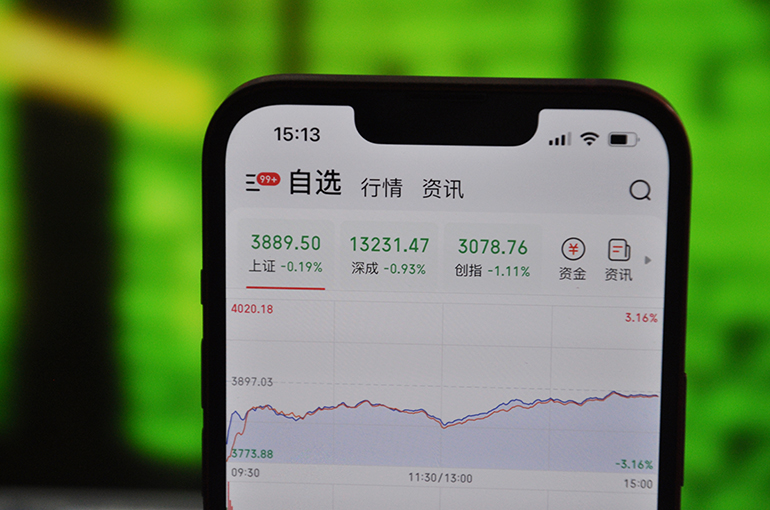Select Language:
Most Chinese stocks continued their downward trend today as renewed tensions between China and the U.S. unsettled investor confidence. This fallout follows U.S. President Donald Trump’s recent threat to impose a 100% tariff on Chinese goods. Experts suggest that the market’s reaction this time might be less intense than the sharp selloff experienced in April.
After falling on October 10, the Shanghai Composite Index edged down by 0.2%, the Shenzhen Component Index declined by 0.9%, and the ChiNext index dropped 1.1%. Conversely, the STAR Market index climbed by 1.4%.
Back in April, the declines were far more severe, with the Shanghai Composite plunging 7.3%, the Shenzhen Component tumbling 9.7%, the ChiNext slumping 12.5%, and the STAR Market closing down 16%.
President Trump’s statement on social media on October 10 accused China of becoming “very hostile” regarding trade and mentioned plans to potentially increase tariffs significantly on Chinese imports. These remarks sparked sharp declines in major U.S. indices, with the Dow Jones dropping 1.9% to close at 45,479.60, the S&P 500 falling 2.7% to 6,552.51—marking its largest daily drop since April—and the Nasdaq Composite tumbling 820.20 points, or 3.6%, to 22,204.43.
A fund manager based in Shenzhen indicated that decisions on possible additional tariffs are likely to be announced by November 1st. They believe Trump’s move was probably intended to gain leverage before negotiations and predict that the market’s decline under the “Tariff 2.0” scenario will be smaller than the April selloff during the initial “Tariff 1.0” phase.
The manager also advised that market dips could present opportunities to buy high-quality stocks at reduced prices. Both A-shares and Hong Kong-listed stocks might continue their correction before resuming an upward trajectory.
Another analyst from Huaxi Securities remarked that the recent tariff escalation is expected to have a less severe impact than last spring’s selloff. In the short term, intensified trade conflicts between China and the U.S. are likely to increase market volatility, but with improved mechanisms and market resilience, the overall impact should be more subdued.
A strategy analyst from Huajin Securities emphasized that the long-term upward trend of the A-share market remains intact. Corporate earnings are expected to continue improving due to domestic economic growth and supportive policies, while credit conditions recover. Valuations are still relatively high, and short-term downside risks are limited. Any market corrections within the ongoing slow bull trend could present good opportunities for buying dips and strategic adjustments.
A private equity expert from Guangzhou advised investors to exercise caution around stocks with high margin financing balances. They suggested reallocating investments from overvalued to undervalued stocks and noted that strong quarterly earnings could sustain positive momentum in certain stocks, especially as third-quarter results are released.






